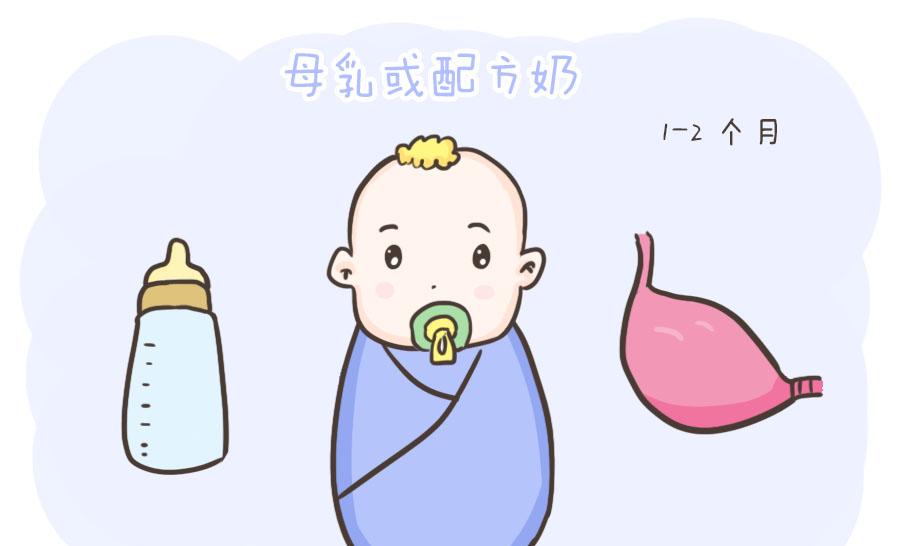As we all know, milk is the best food for babies, rich in calcium, protein, vitamins and minerals and other nutrients, which can help children grow better.
The Dietary Guidelines for Chinese Residents point out that children should eat three meals a day, including appropriate amounts of cereals and potatoes, vegetables, fruits, livestock, fish eggs, legumes and nuts, and sufficient dairy products.
Milk and dairy products are essential for children's growth, how should we choose in the face of the wide variety of milk and dairy products on the market?
1. Correct selection of milk and dairy products
There are more and more types of milk and dairy products, including liquid milk, yogurt, cheese, formula milk, etc., and in liquid milk, there are high-calcium milk, skim milk, low-fat milk, etc., which are dazzling and impossible to start.
So, how should you choose the right milk and dairy products for your child?
a. For babies under 1 year of age, experts clearly state that no milk or formula should be used instead of any milk and dairy products.
Because babies under 1 year old have not yet fully developed gastrointestinal function, the casein content in common milk on the market is as high as 87%, which is difficult to digest.

B.1-2 babies, the Chinese Nutrition Society recommends that young children who cannot continue breast milk, it is best to choose formula, you can add yogurt as a supplementary food in small quantities.
However, it should be noted that the system of metabolic lactic acid in infants and young children is not fully developed, and it is easy to cause indigestion after eating too much lactic acid, resulting in diarrhea, vomiting and other symptoms. And the calcium content in yogurt is limited, which is not conducive to the growth and development of infants and young children, so give children to drink yogurt in moderation.
C. Children over 3 years old can directly choose pure milk, and children who are still willing to drink formula can still drink formula. In addition, yogurt and cheese are also good dairy products, which can be alternately supplemented for children.
Second, how much milk and dairy products should be added to children every day
Some experts pointed out that excessive milk intake can lead to obesity or lactose intolerance and cause diarrhea, and heavy will cause calcium loss in the human body, resulting in osteoporosis, which will affect the growth of children.
It can be seen that the intake of appropriate amounts of milk and dairy products can better help children's growth and development.
a. Babies under 6 months of age mainly rely on milk as a source of nutrition.
American nutrition studies have shown that after the birth of a child, if the amount of milk the child drinks is calculated by weight, the ideal amount of milk to drink is 150 ml per kilogram of body weight per day.
Of course, this is only from the perspective of nutrition, there are individual differences in infants, and when feeding, they should be flexible and mastered.
b. Generally, babies over 6 months old begin to gradually add complementary foods, and the baby gets more comprehensive nutrition. However, as the baby grows up, the demand for milk will also increase, from the perspective of nutrition, the baby's daily milk should not be more than 1000 ml, the insufficient part can be supplemented by egg yolk, minced meat, fish puree, vegetable puree and other complementary foods.
c. Children aged 1-3 years, their diet is gradually balanced, the required nutrition is no longer mainly dependent on milk, most of them are ingested from other diets. In the "Dietary Guidelines for Chinese Residents", we can see that it is still recommended that the daily milk intake of young children at this time should not be less than 500 ml.
d. School-age children are in the learning stage, grow and develop rapidly, and have a relatively higher need for energy and nutrition than adults. Balanced nutrition is the basis for the normal development of children's intelligence and physique, and adequate dairy products promote bone growth in children. The Chinese Nutrition Society recommends that the daily intake of milk and dairy products for school-age children should not be less than 300 ml.
The nutritional value of good milk and dairy products is well known, but it is not the more supplements the better, especially if children drink milk as water.
Food is closely related to human health, and only a balanced diet can improve children's nutritional status.